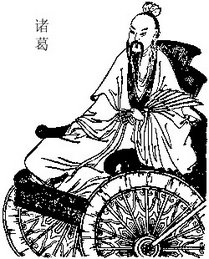Running Stories (0): Mount Up with Wings Like Eagles
I suppose many people see running as a test of physical ability. When it comes to long-distance, people may add that running is also a test of mental toughness. Recently I read an article entitled "There Is No Atheist At 26th Mile", in which the author stated that when one had to stretch his or her body and mind to such an extend while running a marathon (measured at 26.2 miles), it also became a spiritual experience.
Running a half-marathon in Monterey this morning (November 16, 2003), I had to call it a spiritual experience at the end. What I mean, however, is somewhat different from what the above mentioned article indicated. I didn't wait till the end - when I was supposed to be extremely tired - to call on God. My strategy of saving a lot of energy at the beginning paid off handsomely; in fact, I ran my last 3 miles 5-6 minutes faster than my first 3 miles. I invited God into my running much earlier in the race by repeating this verse from the Scripture:
But those who wait on the Lord
Shall renew their strength
They shall mount up with wings like eagles
They shall run and not be weary
They shall walk and not to faint
(Isaiah 40:31, NKJV)
It fit perfectly because instead of running straight like the last race I entered (and didn't totally enjoy), I incorporated walk breaks throughout. As it turned out, I averaged a faster pace during today's 13.1 miles than I did in the last race of 12K (or 7-plus miles) at Bridge-to-Bridge in San Francisco. Walk breaks proved to be very effective.
4-5 miles into the race, I was already able to comfortably maintain a pace that would beat my own expectation. From that point on, I stopped worrying about running anymore. I began to see everything around me. The blue sky. The ocean wave crashing on the rocks. The cypress trees. The cheer crowds including local residents and race volunteers. There was Irish music playing. There was a team of drummers. A few violinists were playing a very slow tune; I didn't think they were helpful. Some runners were so fast (yes, those Africans) that they were already meeting us on their return route while most of us hadn't reached the half-way mark; and a man about my pace kept telling every one of those fast runners his or her overall standing. A few others were shouting "way to go" at those same runners. After the 10th mile, all I was doing was passing people, most of which only had energy left to walk. Knowing that I would finish a good time by my own standard - plus I began to tire myself - I enjoyed a few moments of intentionally slowing down to run with, typically, an older lady and give her a few encouraging words. And of course, the moment of exhilaration when I sprinted across the finish line. Constantly talking to God was one thing (which I enjoyed completely), while being able to appreciate every detail and every moment of the whole race - instead of only thinking about running and finishing - was what prompted me to call it a spiritual experience.
Perhaps I can use this space to recount my running stories - from past to present - to demonstrate how running has evloved from a physical experience to a mental experience and to a spiritual experience in my own life.
